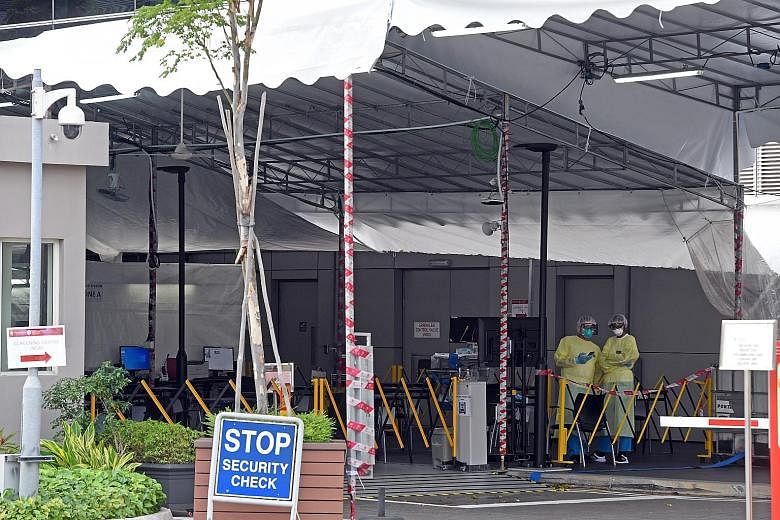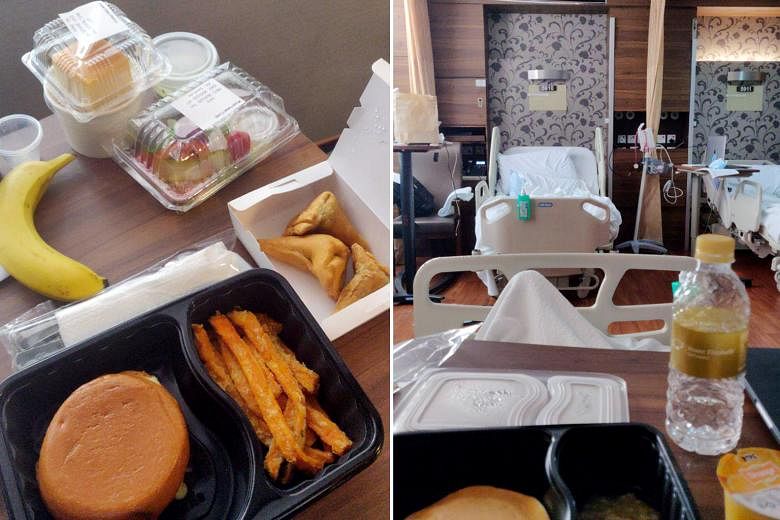The 22-year-old Spanish student left for a week-long trip home to visit his family on March 8, and returned to Singapore from Barcelona on March 14.
He had a low-grade fever of around 37.4 deg C while on the plane, and approached the airport staff upon arrival.
The student, who declined to be named, was then swiftly whisked away to the National Centre for Infectious Diseases (NCID) where a swab test was conducted.
"I didn't even have time to pick up my suitcase," he recalled, half in jest, though he felt that his chances of contracting Covid-19 were slim, since he was not exhibiting any other symptoms.
After being issued with a stay-home notice, he was allowed to go home to await the test results as it was deemed unlikely that he could be a possible carrier of the virus.
Much to his surprise, he received a call from his landlord who told him not to be alarmed, but that the police were looking for him.
"Everything happened so quickly. I was told that I had tested positive for the Covid-19 virus, and the medical officials in hazmat suits came to my doorstep with an ambulance to take me to the NCID," he recounted.
"They carried me as though I was seriously ill, and I was both confused and shocked as it felt like I was experiencing only a slight fever."
Meanwhile, in Spain, his parents, both of whom are paediatricians, had also tested positive for the virus.
In Singapore, the student was staying with three housemates, who tested negative for the virus, much to his relief.
He was subsequently warded at NCID for 10 days, and started developing a cough although his fever subsided after the second day.
"Aside from general tiredness, I felt like I was just having a regular cold. In fact, I think I've had worse bouts of the flu before, so this felt mild in comparison," he said.
Days quickly slipped by, and his view of the outside world was only a transparent door that showed bits of the corridor.
Three times a day, nurses would come into the ward to serve meals, along with his daily dose of medication.
He tried to keep himself busy by completing his school assignments, but he struggled to fight the constant feelings of lethargy. Yet, it was the brief interactions amid the isolation that inspired him and reminded him that he was not fighting the virus alone.
He was warded with a fellow patient, whom he had befriended within the short span of three days.
"It felt nice knowing that someone was in the same boat as you, and it's this shared plight that brought us together," he said.
His ward mate was subsequently discharged after testing negative for the virus, and he was happy as he watched his friend pack his bags in anticipation of finally going home.
Things took a positive turn when he was transferred to Mount Elizabeth Hospital last Monday. He was one of the 29 recovering patients who were moved out of the NCID, as part of the Ministry of Health's move to free up capacity in public hospitals to treat the more seriously ill patients.
It had been close to two weeks since he was confirmed with the virus, though his daily swab test results had constantly come back positive.
Patients have to get two negative test results in a row to be deemed free of Covid-19.
Finally, his excruciating wait came to an end.
Last Saturday, he was told that he had two negative swabs and could finally be discharged.
"I really can't wait to return to Spain to reunite with my family when the situation gets better, but for now, I'll practise social distancing and continue being responsible - just like everyone else," he said.
As of yesterday, Spain had over 78,000 confirmed Covid-19 cases, ranking fourth in the world in terms of the total number of cases.
In recounting his visit back home earlier this month, the student recalled the country's lack of urgency in handling the coronavirus situation, despite the fact that Italy was already a hot spot by then.
It was not until the World Health Organisation (WHO) declared the coronavirus outbreak a global pandemic on March 11 that Spain decided to ramp up measures in response to the situation, which escalated rapidly overnight.
"Through this experience, I felt genuinely lucky to be in Singapore at this time, as the rigorous set of precautionary measures here has helped the authorities deal with the outbreak so well," he said.
"And I know that I would never receive this level of treatment and attention, should I have been anywhere else."



